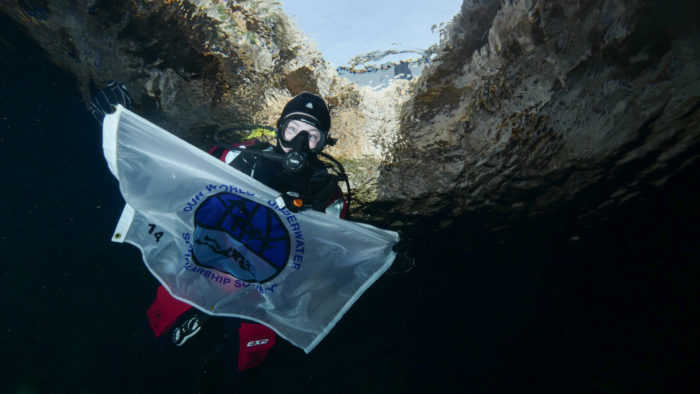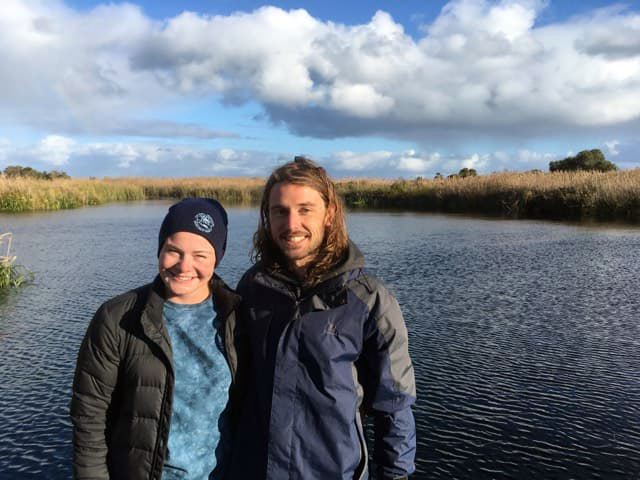
I returned to Austalia after a month of diving in the warm tropical waters of the Pacific, where the 2013 Australasian Scholar Stefan Andrews invited me to join him in his home state of South Australia for some familiar, cooler temperate diving. I was also set to undertake my PADI Drysuit Speciality Course. The first part of this experience involved a 5 hour drive from Adelaide to Mount Gambier with Stefan and his good friend, fellow marine scientist and dive enthusiast Sam Owen, where we were set to explore some of the most stunning freshwater sinkholes Australia has to offer.
We set off early to our first stop, Piccaninnie Ponds, to make the most of the day. As we were about to explore a Conservation Park that is recognised as a wetland of international importance, we required a permit to dive and had an allocated time to explore the ponds. Picaninnie Ponds over time, arose through freshwater rising to the surface and under pressure the limestone that housed the pond has become weak and erroded to form The Chasm and The Cathedral.
It was a chilly 10 degree celsius winter morning and as I plunged into the freshwater pond I was pleasantly surprised! I think I was expecting the water to be murky and freezing like other freshwater I had previously been swimming in, but diving this was a whole new experience and exceeded my expectations. The ponds were full of lush green plant life that stood dead still with no current or wind but there were tiny darting fish, nimble lobsters and many slow, slithery eels moving between.
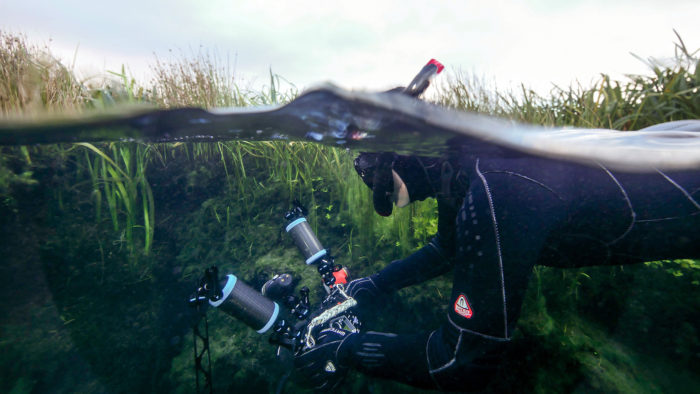
A drive around Mount Gambier to check out a few of the other freshwater ponds, including Little Blue Lake, we all ended up agreeing on Ewens Ponds as the next freshwater dive site. Ewens Ponds are a series of 3 interconnecting ponds that eventually leads to the sea and is another recognised Conservation Park in South Australia. Shimming our way back into our wet wetsuits (even more incentive to undertake my drysuit course!), we jumped back in to find water even clearer than Picaninnie Ponds, with 80m+ visibility and green flora more vibrant than our first dive.
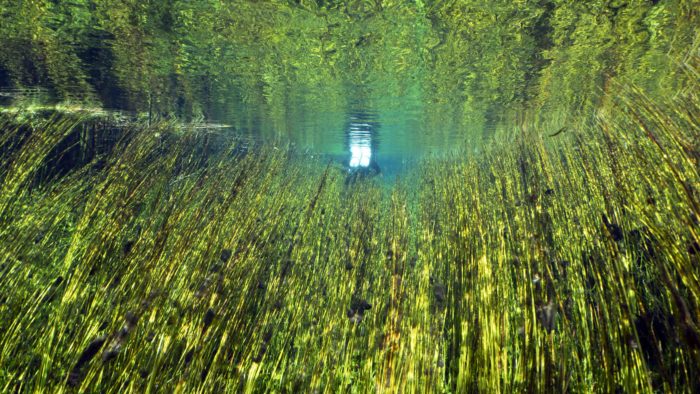
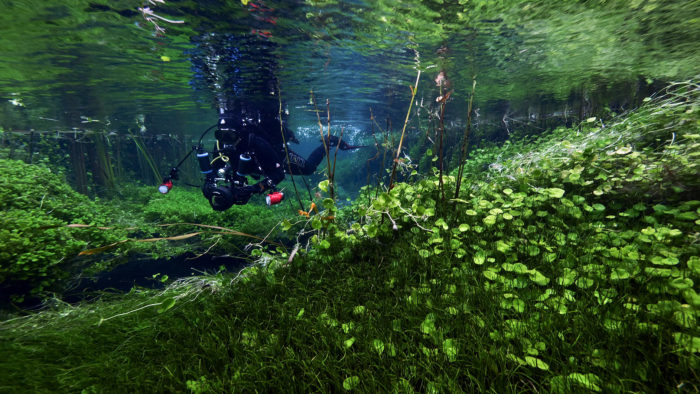
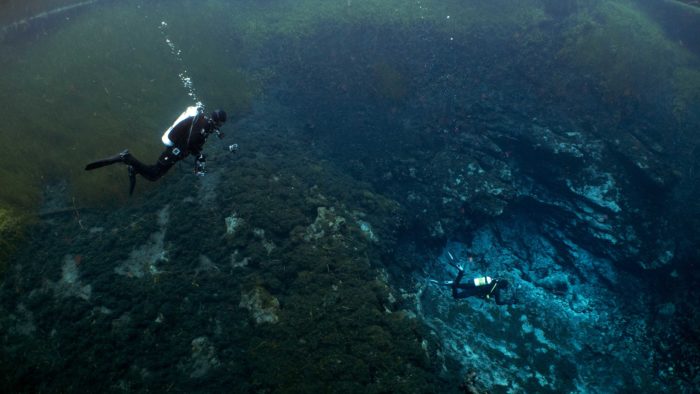
Ewens Ponds were spectacular and had me extremely excited for my drysuit course the next day. Ron Van Der Marel and the wonderful team at Diving Adelaide helped me organise my PADI Drysuit Specialty Course which I was so lucky to be able to undertake at the incredible Kilsby Sinkhole. To be honest, I never thought I would be diving in a freshwater sinkhole in the middle of a farm, but this was definitely an amazing introduction to drysuit and freshwater diving (it also made me change my mind about learning to cave dive)!
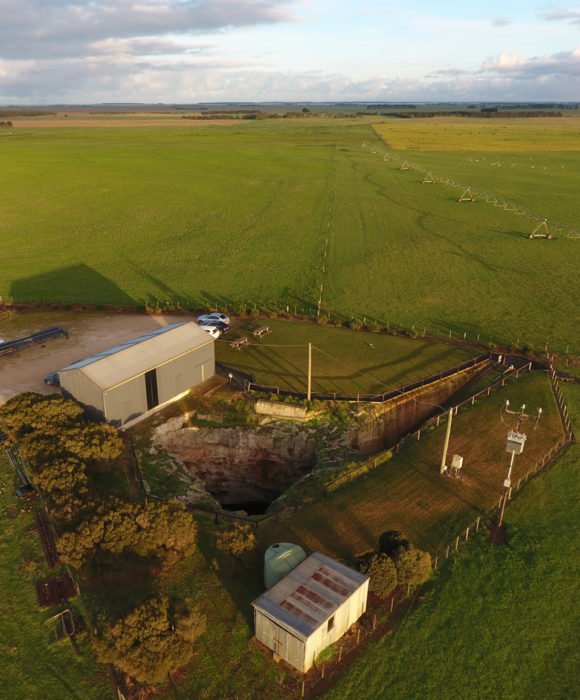
We met my instructor from Diving Adelaide Grant Moyle, who gave me thorough explanations of the do’s and don’t’s of drysuit diving and how to get out of tricky situations if they ever arose. After a short classroom session, we got kitted up and made our way down into the sinkhole that is Kilsby’s. I was feeling very snug in my suit and ready to take on the cold water, as well as explore this amazing looking site, particularly after the diving we had done the day before.
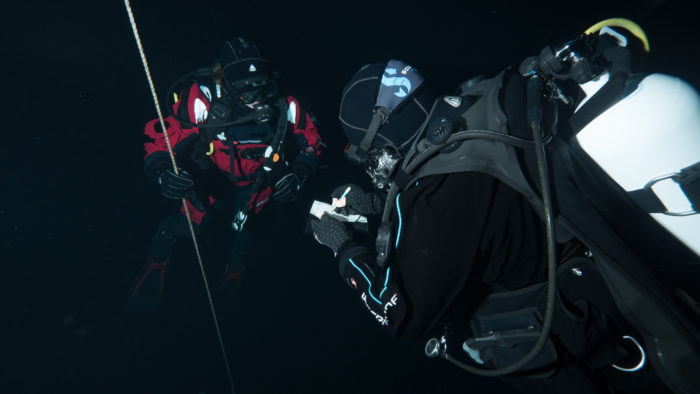
Grant got me to do some drills up and down a shot-line, including upside down scenarios where all the air goes to my feet and a stuck inflator button. It didn’t take too long before I got the okay and the four of us made our way to the bottom of the sinkhole, which was approximately 30m before it started to go into the cave opening, which stretched down to a depth of 65m (and which requires more technical training)! Kilsby’s Sinkhole provided a whole new level of visibility; I can’t say that I have ever dived in water so clear in all my life.
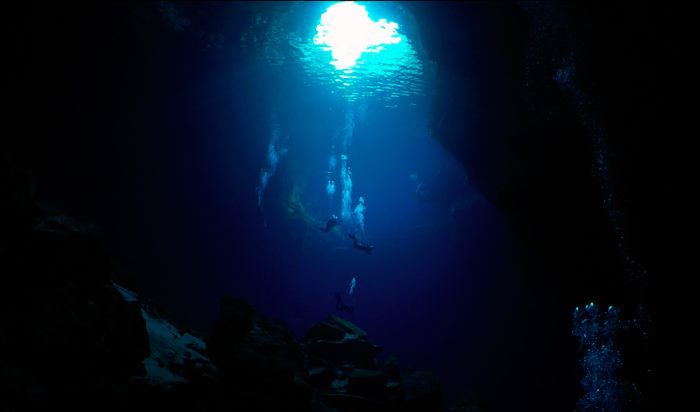
A huge thank you to Stefan Andrews who put together this outstanding short video of my diving experience in South Australia’s freshwater ponds:
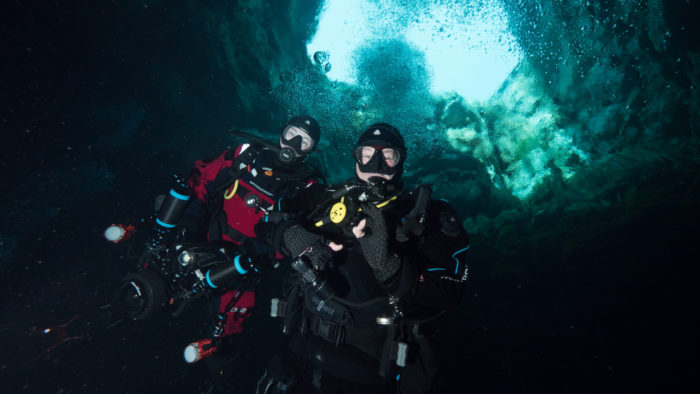
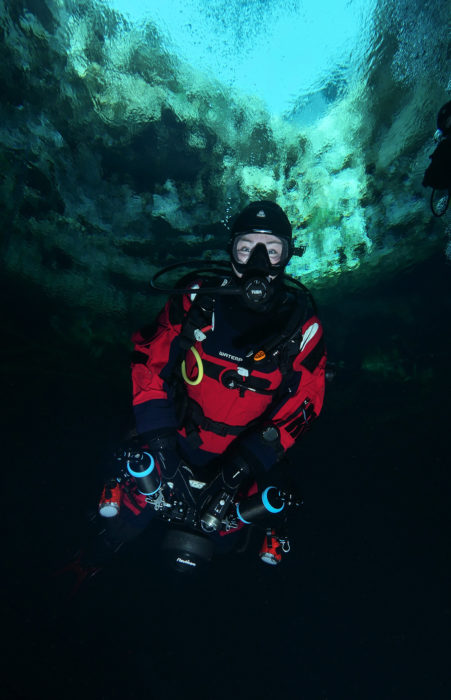
The diving in Mount Gambier certainly was spectacular and not only that, I was warm and dry at the end of my diving!!! This course and the chance to dive freshwater systems has truly opened up a new world of diving for me. I would sincerely like to thank PADI, in particular, Thomas Knedlik and Danny Dwyer for supporting my diving education as well as Ron Van Der Marel and Grant Moyle from Diving Adelaide for the careful instruction and facilitating this amazing experience at Kilsby’s Sinkhole. Thank you also to the Kilsby’s family for allowing us to dive on their property and explore this amazing site. A huge thank you to David at Tabata as well as Waterproof International for the incredible EX2 Drysuit, as well as the rest of my amazing gear! Thank you again to all of the support from OWUSS, Rolex, TUSA, DAN, PADI, Mako Eyewear, Reef Photo & Video and Nauticam.
Next, I am off to Whyalla with Stefan to help document for his latest upcoming project ‘The Grea Southern Reef‘ the important work the Experiencing Marine Sanctuaries team do in educating and letting the community, including school groups, experience the annual Cuttlefish migration event happening in their own backyard!
